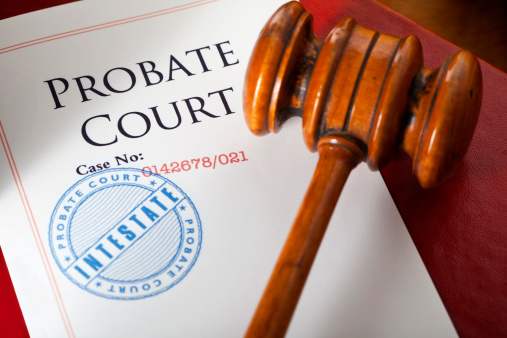When a loved one passes away, their estate may need to go through probate court to be distributed according to their wishes. Unfortunately, sometimes the probate court’s decisions don’t always align with what the family believes is fair and just. If you find yourself in this situation, it’s important to know that you do have options. One of those options is to appeal the probate court’s decision. Appealing a probate court decision can be a complex process, and it’s important to have an experienced attorney to guide you through it. In this guide, we’ll look at the appeals process in probate court and provide tips for winning your appeal.
Grounds for Appeal in Probate Court
If you’re considering appealing a probate court decision, it’s important to understand the grounds on which you can base your appeal. In general, you can appeal two types of decisions in probate court.
· Legal errors
This refers to mistakes the probate court makes in applying the law to the case. For example, if the probate court misinterprets a will or trust document, that could be grounds for an appeal.
· Factual errors
On the other hand, factual errors refer to mistakes the probate court makes in determining the facts of the case. For example, if the probate court relies on inaccurate or incomplete evidence in making its decision, that could be grounds for an appeal.
If you’re considering appealing a probate court decision, consult an experienced attorney to determine whether you have a strong case for appeal.
Preparing for an Appeal in Probate Court
Here are some tips for preparing for an appeal in probate court:
- Gather all relevant documents and evidence: To build a strong case for appeal, you’ll need to gather all relevant documents and evidence related to the case. This may include wills, trusts, court orders, and other relevant paperwork. You’ll also need to gather evidence supporting your legal or factual error claim.
- Consult with an experienced probate attorney: An experienced probate attorney can help you navigate the appeals process and provide valuable guidance on how to build a strong case. They can also help you identify any legal or factual errors that may have occurred in the probate court decision.
- Review the probate court record: The probate court record is a transcript of all the proceedings during the probate court case. Reviewing this record can help you identify any legal or factual errors that may have occurred.
- Develop a clear legal argument: To win your appeal, you’ll need to develop a clear and persuasive legal argument. Your argument has to demonstrate the legal or factual errors that occurred in the probate court decision.
- File your appeal in a timely manner: In general, you need to file appeals in probate court within a certain period after the probate court issues its decision. It’s important to file your appeal promptly to avoid missing this deadline.
Filing an Appeal in Probate Court
Here are the steps involved in filing an appeal in probate court:
- Consult with an experienced probate attorney: Before filing your appeal, it’s important to consult with an experienced probate attorney. They can help you determine whether you have grounds for an appeal. Additionally, they can guide how to build a strong case.
- Draft the notice of appeal: The notice of appeal is a formal document you need to file with the probate court. Your attorney can help you draft this document and ensure it includes all the necessary information.
- Serve the notice of appeal on all parties: Once you’ve filed the notice of appeal, you must serve on all parties involved in the probate court case. This includes the opposing party, any attorneys involved in the case, and the probate court itself.
- Pay the filing fee: There is a filing fee associated with filing an appeal in probate court. This fee varies depending on the jurisdiction, so it’s important to check with the probate court to determine the exact amount.
- Request the probate court record: As part of the appeals process, you’ll need to request a copy of the probate court record. This record includes all the documents and transcripts related to the probate court case.
- Prepare your legal argument: To win your appeal, you’ll need to develop a clear legal argument demonstrating the legal or factual errors in the probate court decision.
Tips for Winning an Appeal in Probate Court
Below are some tips for winning an appeal in probate court:
- Work with an experienced probate attorney: An experienced probate attorney can provide you with valuable guidance and support throughout the appeals process. They can help you navigate and build a strong legal argument.
- Build a strong legal argument: To win an appeal in probate court, you’ll need a strong legal argument. This means conducting thorough legal research and identifying relevant legal precedents to support your case.
- Stay organized: The appeals process can involve a lot of paperwork and deadlines, so it’s important to stay organized. Keep track of all important documents and deadlines, and submit all required materials on time.
- Be prepared for oral argument: If the court schedules an oral argument, make sure to prepare thoroughly. Practice your arguments and anticipate potential questions from the judge.
- Be patient: The appeals process in probate court can take time, so patience is important. Remember that the court has many cases to review and may take several months to issue a decision.
Conclusion
At Saanichton Law Group, we understand that the appeals process can be overwhelming and stressful. Whether you’re filing an appeal in probate court or defending against one, Saanichton Law is here to help.
Contact us today to schedule a consultation and learn more about how we can help you win your probate court appeal.




